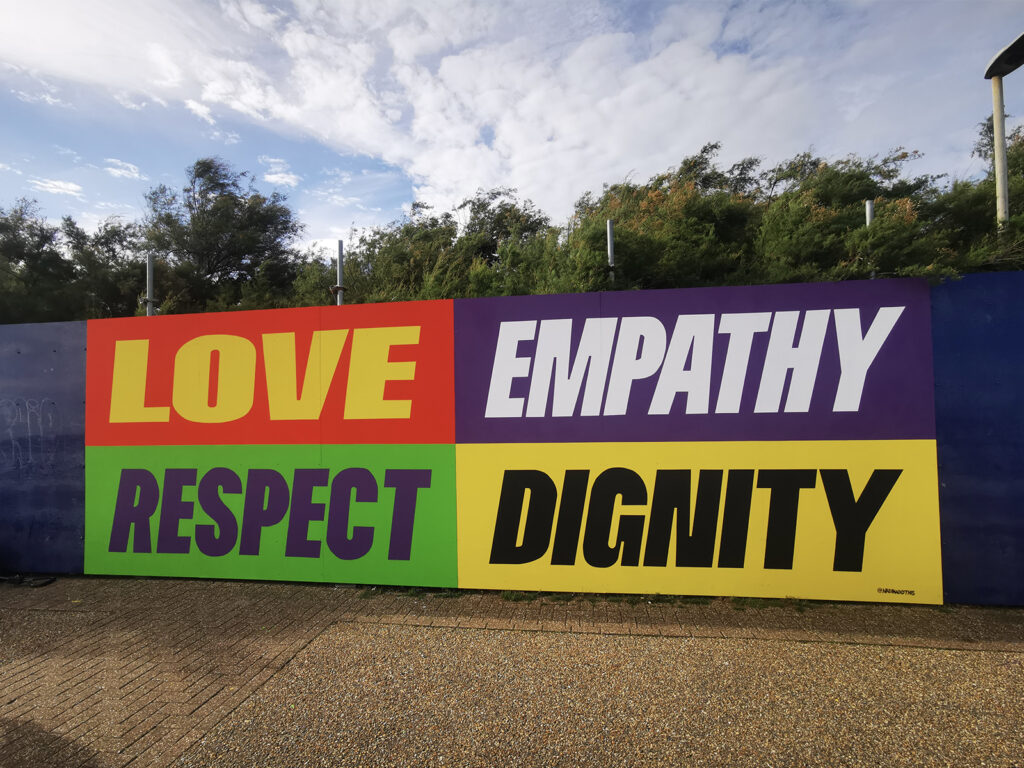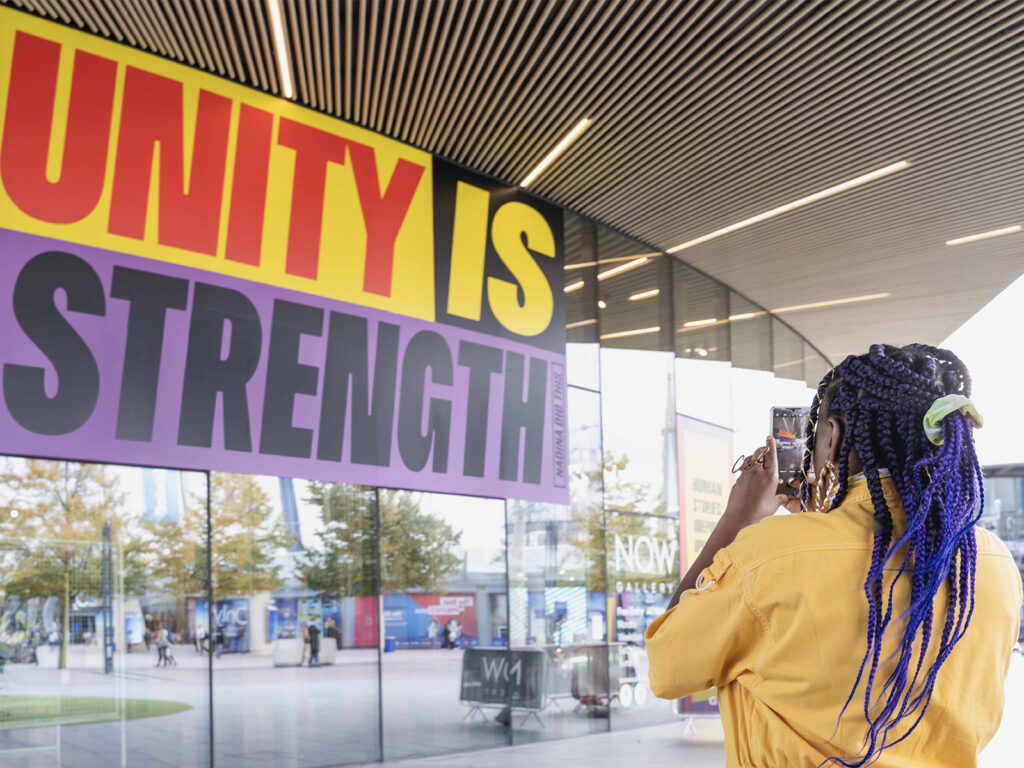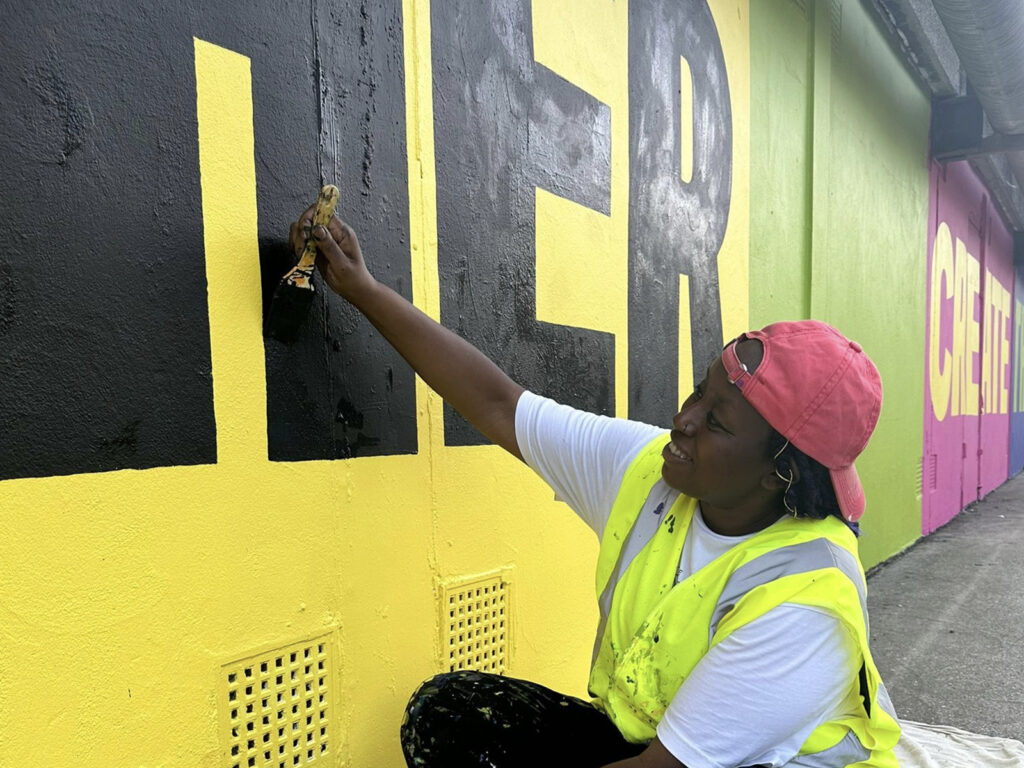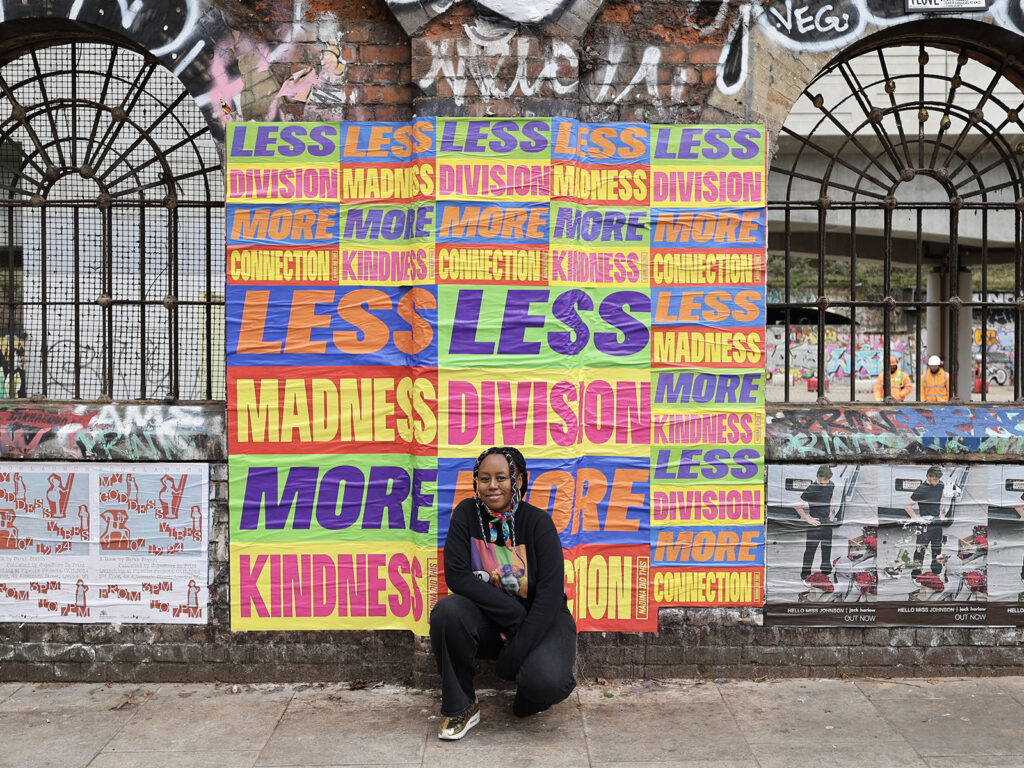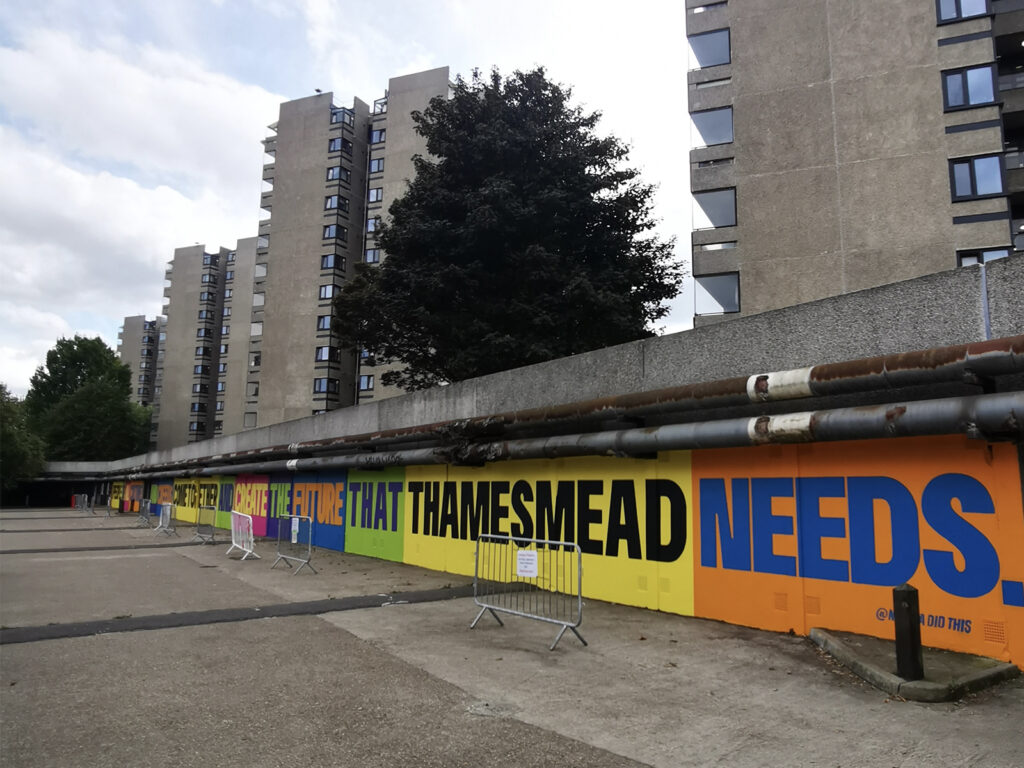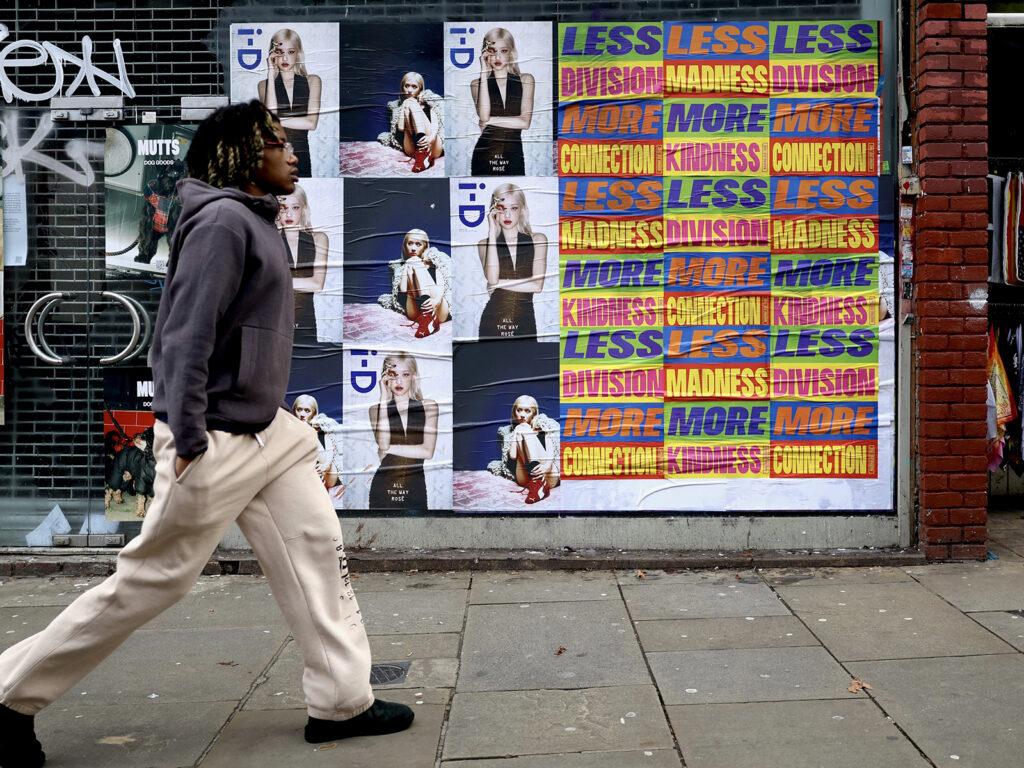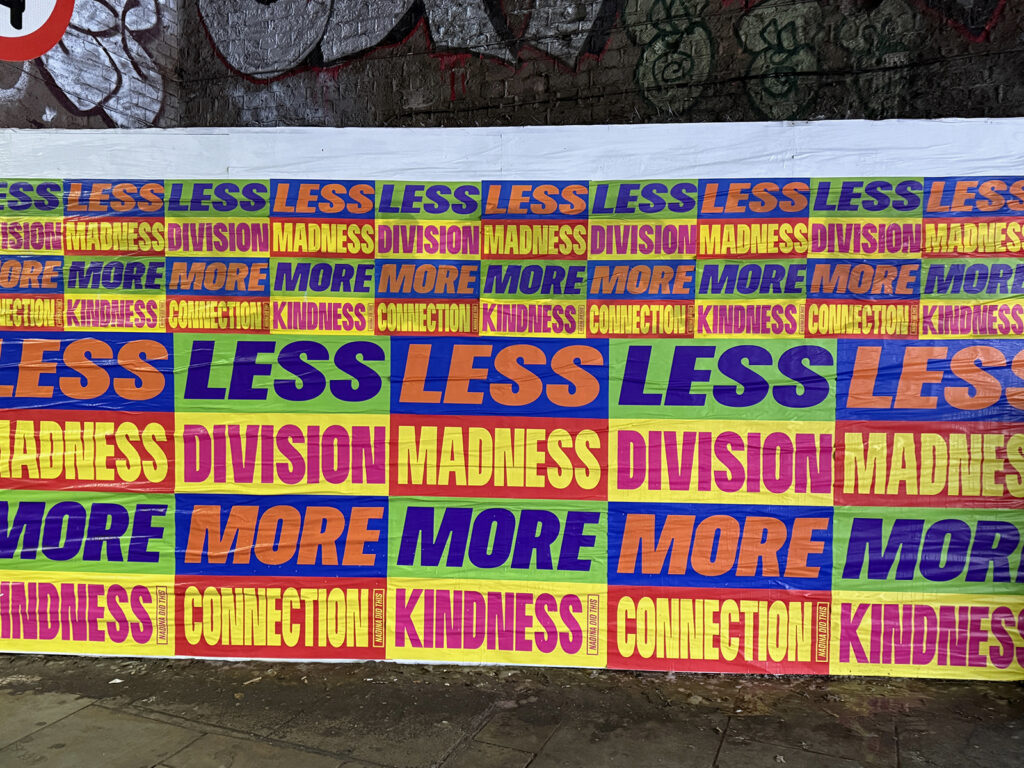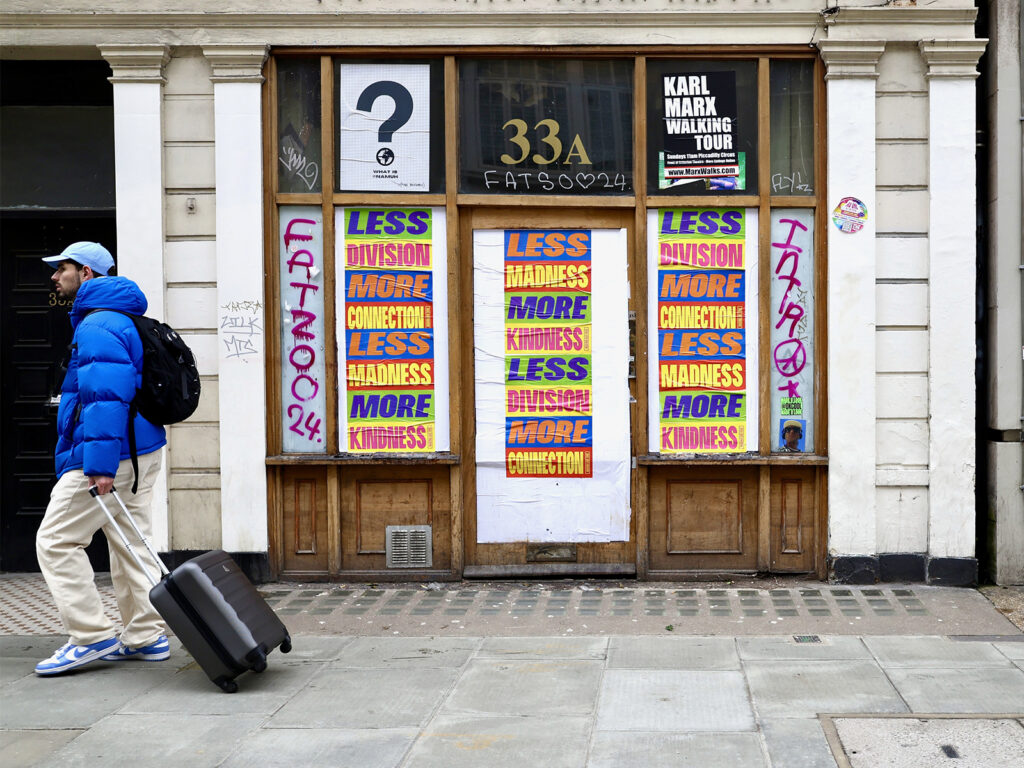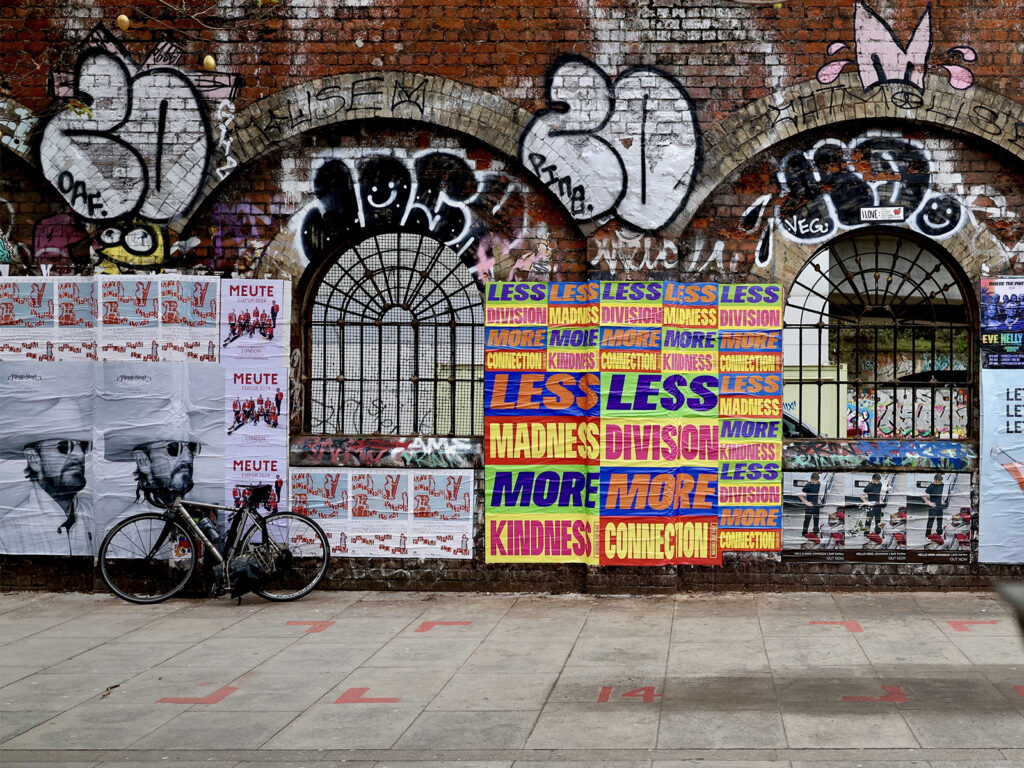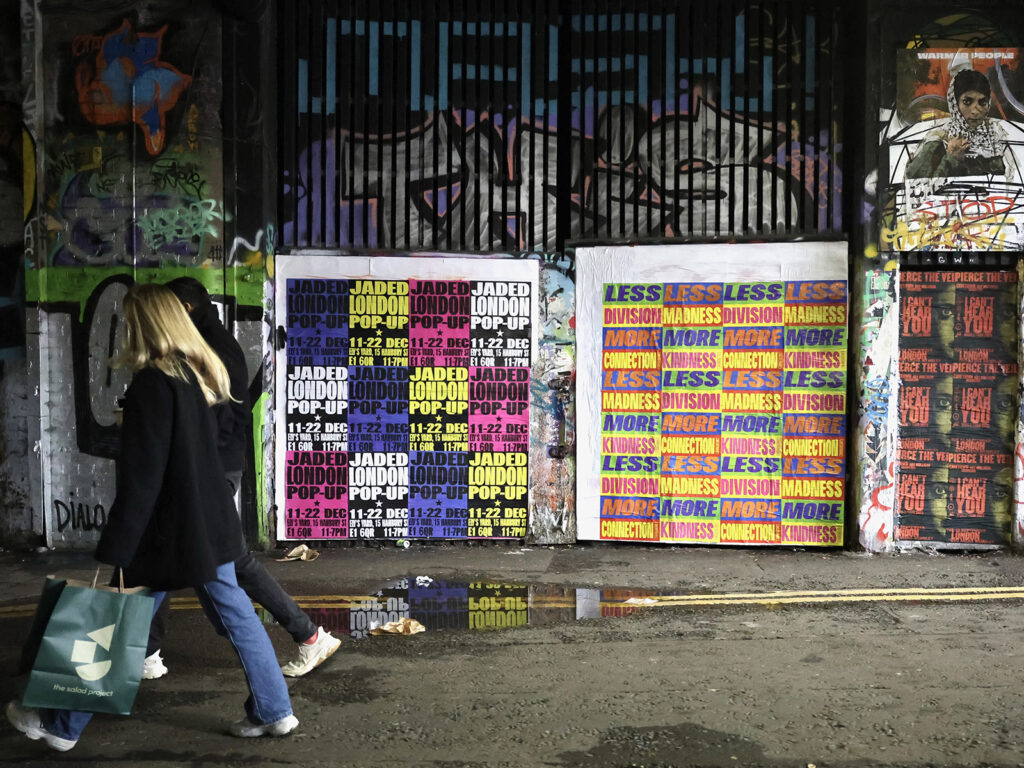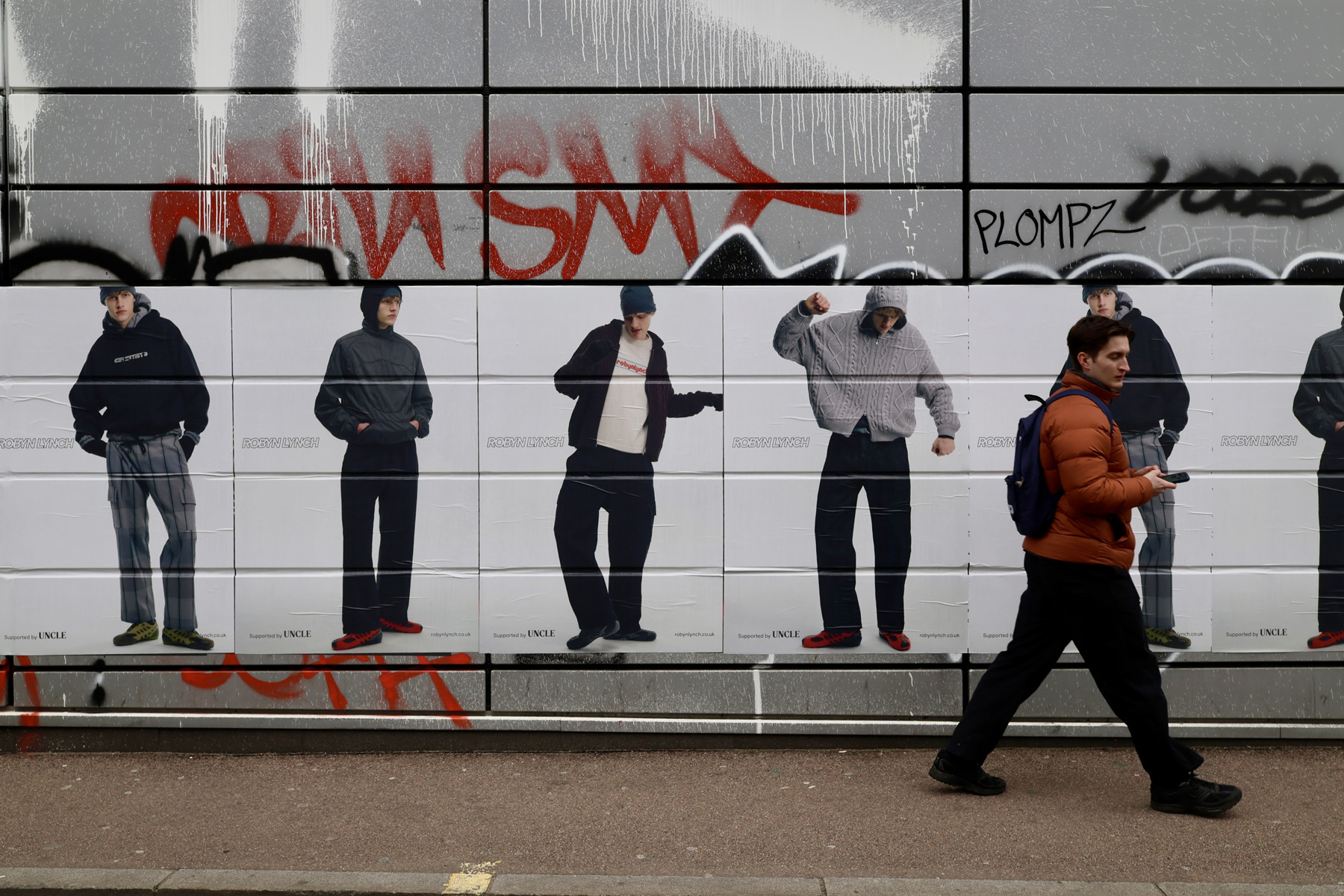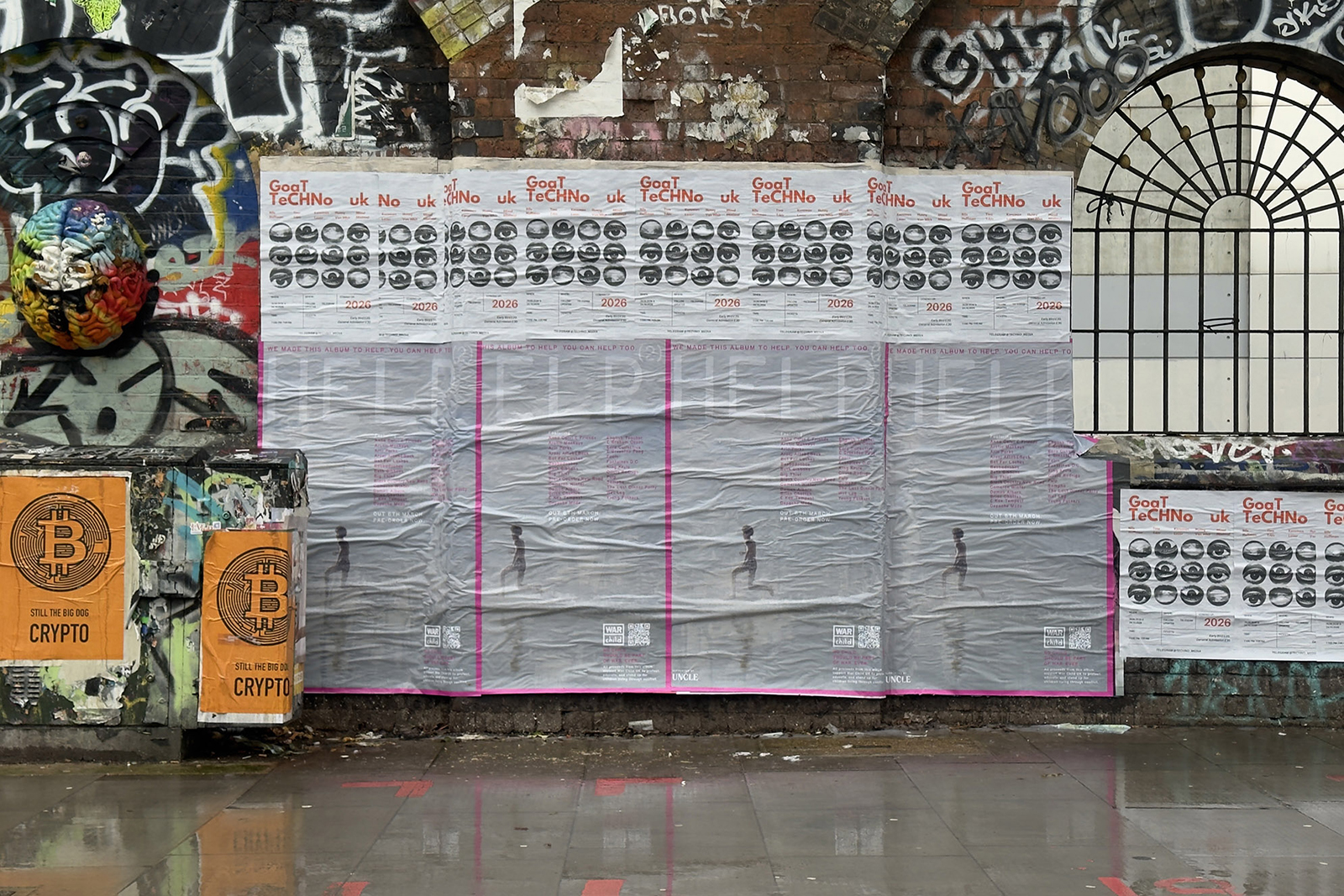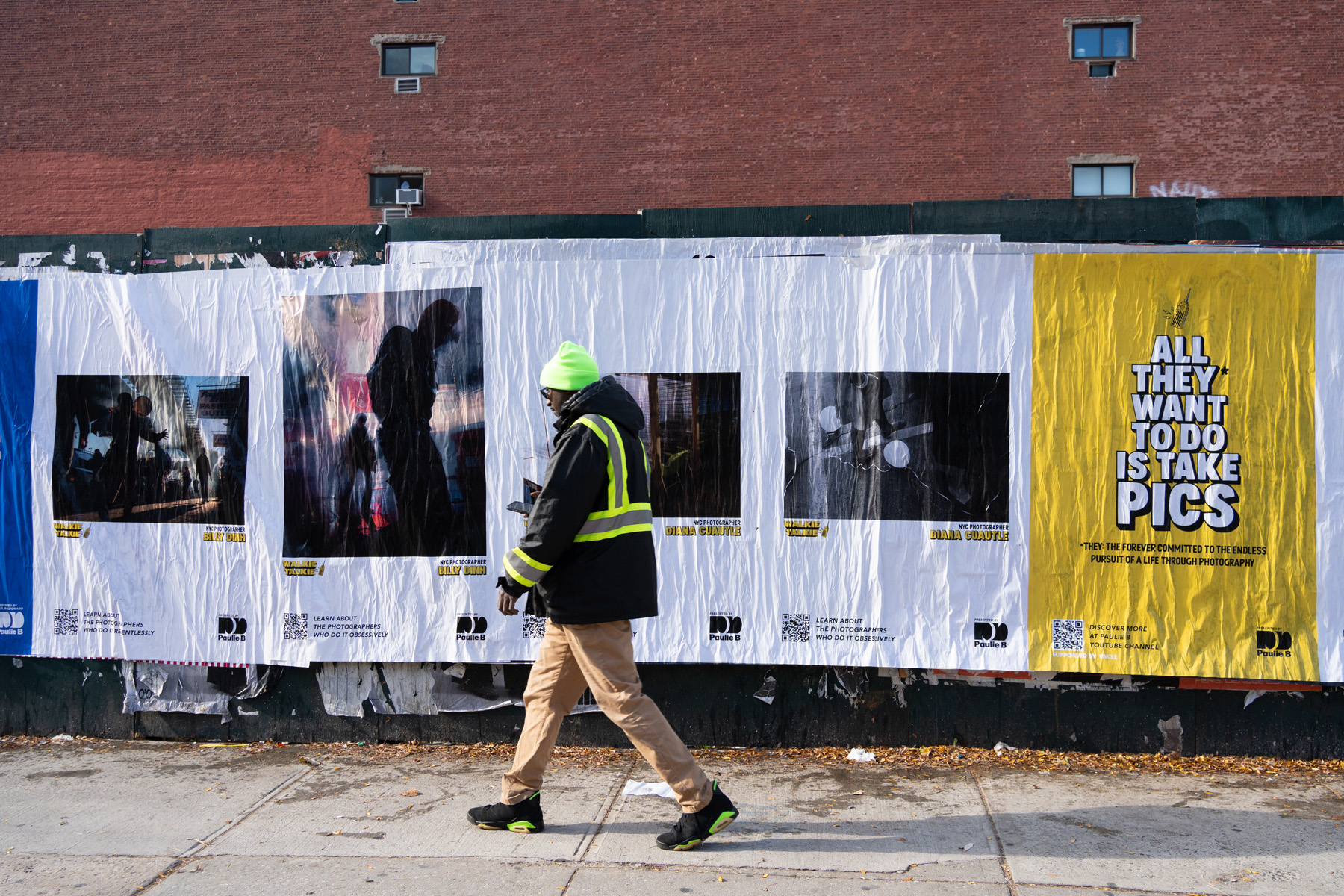
Nadina Ali is a London-based multidisciplinary artist whose bold, thought-provoking work uses the power of design to amplify marginalised voices and address pressing social issues. Known for her striking typographic posters and visually arresting slogans, Ali’s art inspires people to reflect, converse, and act. Her latest project centres on spreading positivity and unity, blending her signature style with messages that challenge the current climate of division and injustice. She has partnered with UNCLE to bring these messages to the streets just in time for the end of the year, aiming to inspire a fresh start filled with positivity, kindness, and connection as we step into the new one.
Ali’s creative journey is deeply informed by her personal experiences as the child of East African immigrants who grew up in France and later found her artistic voice in London. Her work has been shaped by a desire to empower others, normalise conversations about uncomfortable truths, and encourage meaningful action. Drawing inspiration from protest slogans, she crafts her own statements with a focus on problem-solving and impactful storytelling. Ali’s posters, including her latest series Less Is More, have become powerful tools for addressing societal issues with optimism and clarity.
In this interview, Ali delves into the inspirations behind her work, the creative process of refining her bold typographic style, and the role of public art in driving social change. Read on for an engaging Q&A with Nadina Ali, where she discusses her mission to inspire kindness, connection, and activism through art.
WHAT INSPIRES YOU?
People speaking up against injustice.
WHAT IS IMPORTANT TO YOU ABOUT YOUR ART?
Raising awareness about topics and issues that people might not be aware of, normalising having conversations that might be uncomfortable, encouraging people to speak up about the things that matter to them, and empowering as many people as possible to act towards positive social change.
HOW HAVE YOU REFINED YOUR STYLE?
Through lots of typographic experimentation to help me identify what style has the most visual impact.
WHERE DO YOUR SLOGANS COME FROM?
I come up with my own slogans and often use protest slogans as a reference point.
WHAT IS YOUR FAVOURITE PART OF THE CREATIVE PROCESS?
Problem solving.
ARTISTS YOU LIKE AT THE MINUTE?
Malala Andrialavidrazana, Jasleen Kaur, Deborah Segun, Alma Singer.
TALK US THROUGH THE DESIGN OF THE POSTERS?
The posters come from a series of slogans I started in 2021 called ‘Less Is More.’ I imagined the series as everyday pieces of advice that people could benefit from, including myself. The format of the posters follows the bold and colourful typographic style I currently use and is supposed to be as eye-catching as an advert, except they are meant to spread positivity.
WHAT DOES THE CAMPAIGN AIM TO ADDRESS?
The campaign aims to address the current state of the world, where it seems like bigotry, hatred, and injustice are at an all-time high. Both ‘Less Madness, More Kindness’ and ‘Less Division, More Connection’ felt like the kind of positive messages that the world particularly needs right now. I hope those messages will contribute to bringing people together through being kind to each other and connecting with one another.
DOES YOUR FRENCH HERITAGE IMPACT YOUR WORK?
As a child of East African immigrants from a country previously colonised by France, and as someone who was born and grew up in France yet never felt accepted as a French person, it’s difficult for me to give credit to my French heritage in a way that is celebratory. However, the challenges I have faced being an under-represented individual have definitely informed my practice and my desire to amplify marginalised voices through my work.
HOW HAS LONDON INFORMED YOUR STYLE?
It allowed me to be bolder.
FAVOURITE PLACES IN LONDON?
Shoreditch, the Southbank Centre, Somerset House, Black Cultural Archives.
BEST THING ABOUT LIVING IN LONDON?
Access to a plethora of amazing art and cultural events.
WHAT’S NEXT FOR YOU?
More public art.

